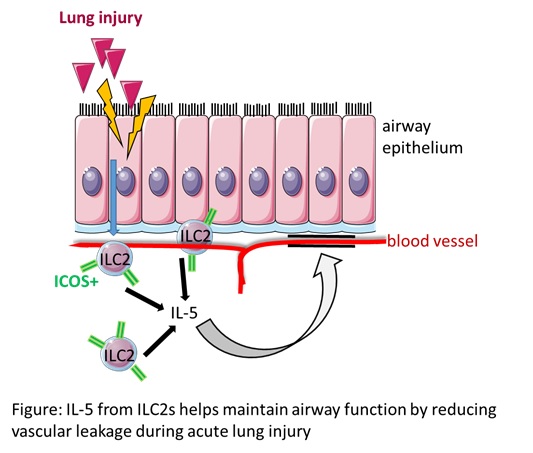Written by Chloe Pyle
Edited by Lauren Headley
Idiopathic pulmonary fibrosis (IPF) is a progressive lung disease of unknown cause, which results in hardening of the lung parenchyma due to collagen deposition and loss of pulmonary function. The role of the immune system in lung fibrosis is not well defined, although previous studies have shown that immune suppression is associated with decreased survival in acute exacerbations of IPF. The new study we discussed (1) addresses the contribution of population of immune cells, those that express the molecule ICOS, on the outcome of acute lung injury in a mouse model of lung injury and fibrosis.
ICOS-deficient mice were significantly more susceptible to fibrotic lung injury, resulting in severe weight loss, vascular leakage and airway oedema, but collagen deposition was unaffected. Type 2 innate lymphoid cells (ILC2s) were the first ICOS+ population to expand upon injury, and the authors speculate that the IL-5 produced by these cells is key in protecting from acute lung injury. In the lungs of patients with IPF these cells were deficient when compared to the lungs of healthy individuals. Their data suggests that lung resident ILC2s are poised to respond rapidly to injury and play a key role in regulating vascular permeability, which may confer protection during acute lung injury whilst not affecting the fibrotic process (see cartoon).
- ICOS protects against mortality from acute lung injury through activation of IL-5+ ILC2s. Hrusch CL, Manns ST, Bryazka D,…. Sperling AI. Mucosal Immunology (2018) 11:61-70. https://www.nature.com/articles/mi201742